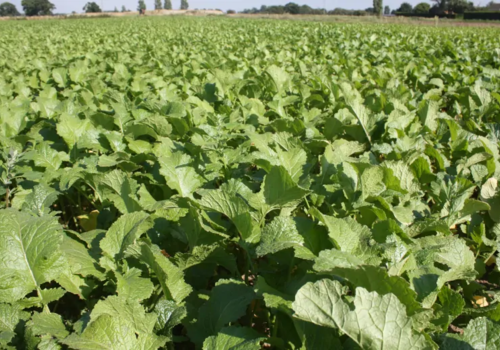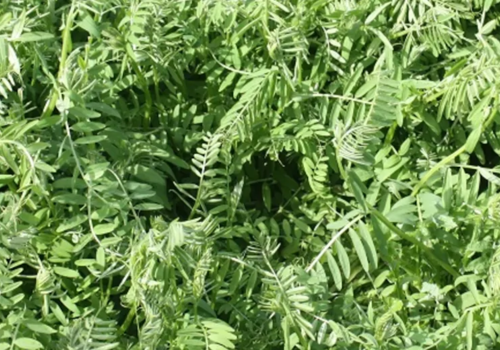In a world where sustainable agriculture is attracting more and more attention, cover crops (those grown not for food, but as soil cover) offer several benefits other than financial profit. Their value lies in the ways they can benefit the farming system.
Advantages of Cover Crops
In our article What is a Cover Crop? we touched on the benefits of cover crops. Here, we expand on those original points.
Cover Crops Improve Soil Health
Cover crops are known for their ability to improve soil health by impacting on the structure and fertility of soil. Legume cover crops including vetch and clover, fix atmospheric nitrogen in the soil, which boosts the fertility of the soil naturally. Grass cover crops and cereal cover crops increase organic matter while improving soil texture, which in turn improves water retention, reduces erosion and improves the root penetration for future crops. Deep-rooted cover crops, such as Blue Lupin, help by breaking up compacted layers. They improve aeration and water infiltration which will lead to crumbly, well-draining soil that will support healthy root systems in the future.
Cover Crops Help with Erosion Control
Wet weather can cause significant soil erosion in fields that are left bare during the winter. Planting cover crops provides a protective layer which will reduce the impact of heavy rain and surface runoff. This can be particularly useful on sloped land or in light, sandy soils that are easily washed away or on bare winter fields.
Weed Suppression with Cover Crops
As many cover crops are fast growing and provide dense growth, they overtake weeds, outcompeting them for light, water, and nutrients. Fewer weeds reduces the need to use herbicides, lowering chemical costs and giving a more balanced field ecosystem.
Biodiversity and Pest Control
Certain cover crops, such as buckwheat, attract beneficial insects and pollinators, promoting biodiversity on the farm. While others, including mustard, are biofumigants which means they suppress soil-borne pests and diseases completely naturally. This can break pest and disease cycles, which is important in crop rotation systems.
Water Retention and Drought Resilience
With our unpredictable weather here in the UK, and more frequently occurring periods of drought, effective water management on farms is vital. Cover crops improve the soil’s ability to retain water. This means that as their organic matter decomposes, the retained moisture will create a sponge-like soil environment, resulting in reduced irrigation needs and improved resilience in dry spells.
Carbon Sequestration
As the UK continues to work towards net zero emissions, cover crops can help in the fight against climate change. They capture atmospheric carbon dioxide through photosynthesis and store it in the soil. This not only builds long-term carbon stores in the soil but it also supports a more climate-resilient form of agriculture.
Cover crops undoubtedly offer a raft of environmental and agronomic benefits, in keeping with the increased focus on sustainable and regenerative farming. While they certainly improve soil health, reduce erosion, and support biodiversity, it is important to bear in mind that they are not a one-size-fits-all solution. To be successful, they need effective planning, careful species selection, and a willingness to invest time and resources. For farmers who consider the climate, soil type and business model on their individual farms, cover cropping can be a powerful tool in the sustainable farming toolkit.
Cover Crops from Boston Seeds
At Boston Seeds, we believe Cover Crops can benefit the environment and farm. For farmers and land managers who are looking for practical, sustainable solutions, cover crops are emerging as a proven tool for regenerating land and boosting resilience. If you are considering the use of cover crops, why not request a catalogue of our full range? For any questions, our experienced sales team is available on 01205 280069 and can also be contacted by email.

